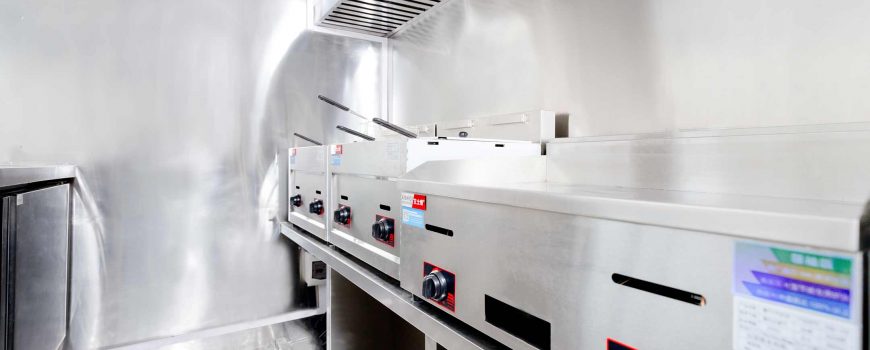How To Become a Millennial Entrepreneur With Food Trailers
In the midst of slower economies and ever-changing business landscapes, millennials have the ability to adapt and reform the classics to make it work for them. With price sensitivity a driving factor, millennials are quite often on the lookout for profitable ventures that have a low cost to entry.
Coupled with a strong sense of technology, online marketing and creativity, millennials are beginning to emerge left right and center in almost all markets that have the ability for a slick reform.
Michelle Phan used the mammoth platform Youtube to promote her makeup skills and products and has been crowned one of the original makeup gurus of Youtube.
Brian Chesky saw the hotel industry as an expensive, stale way to travel and introduced the much cheaper and more accessible Airbnb.
Or what about Marti Libermen, a recent Drexel University graduate, who started the Mac Mart food truck in 2013? (external link there) The food truck was built to respond to the lack of quick, accessible food anywhere- and a love for mac and cheese. The kicker? Mac Mart became so popular, that this impressive millennial also applied her “cheesy” branding to a brick and mortar location in Philadelphia this last Spring.
Millennials are Shifting the Food Industry
The food industry, particularly over the last ten years, has quickly shifted to align with millennials buying habits and purchase drivers. Alongside Gen X and Baby Boomers, millennials present a different marketing landscape- and businesses within the food industry have had to adapt.
Millennials are very strongly driven by convenience, much more than their counterparts Gen X and the Baby Boomers who tend to eat at home much more often. Food options that are flexible, available and quick tend to take precedent over the process of cooking or even brick and mortar restaurants. Coupled with the demand for vegan, organic, healthy options with a known story behind the food- and you’re looking at almost an entirely new industry that existing food establishments don’t have all the functionalities to handle.
Well, almost a new industry.
The mobile food industry began as a venture for those out of work chefs suffering during the US recession to bring home the bacon (no pun intended, we promise.) In a few years however, the mobile food industry became the ideal landscape to build ventures that responded to all of the demands of the millennial market.
Millennials Are Strengthening the Mobile Food Industry
The thing is, though- not only are millennials shaping the demands of the mobile food industry, but they are also investing and carrying the industry past a three billion dollar market.
Not just by chomping down on creatively insane foods like these (internally link to blog: top 10 food trailers), but by creating profitable businesses with very little investment. Millennials know what food options are being demanded and how to get it from stove to plate. And with the systematic disintegration of the traditional 9-5 work week, more and more people within the younger generations are looking at food trucks and trailers. They’re a great way to combine creativity, food sense and limited capital to build a profitable business.
37% of food trucks and trailers were bought by millennials last year, with more millennials opting for food trailers over their larger counterparts. While trucks can wear an initial price tag of $100,000, trailers clock in at just a fraction of that- and have all the functionalities of a food truck (of course, minus the wheels. You will definitely need a vehicle.)
Food trailers actually have a slight upper hand (link to blog about the vs.) in terms of size and kitchen capabilities- you can run more food out of a trailer; more of a variety too, since the kitchen can be adapted a little further than in a food truck. Food trailers are quite literally full custom mobile kitchens.
And with an average initial investment of $25,000, food trailers are a fraction of the cost of food trucks with all of their capabilities. For a budding entrepreneur, these are a perfect option to start a business with minimal debt. The “guts” of the trailer can be as affordable or premium as you like; the control on the costs of building up a food trailer is another attractive option for future chefs on wheels.
The ability to customize both your mobile kitchen and exterior presents a rad opportunity to build a strong, unique brand. The uniqueness of the concept, as well, may end up with some near viral marketing for your business; if something- anything – is cool, you will see it online. The visuality of food trailers makes for great content and imagery, appealing to the need for visuals in today’s society.
Don’t forget though- food trailers aren’t just pop up kitchens that you can drag to a food fair with minimal commitment and maintenance. The mobile food industry is a busy and growing market, offering hard working entrepreneurs the chance to create and roll out their own business; without the fear of huge upfront costs or the inability to raise them.
The ability to remain mobile and bring your business to open markets is quite literally the dream of anybody entering the entrepreneurial foodie landscape. With hard work, a focus on branding and of course- food to fit the market- a food trailer can be a steppingstone to something down the line or remain as compact, cash cow on wheels.

